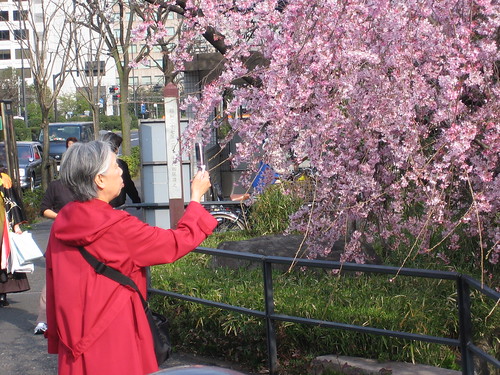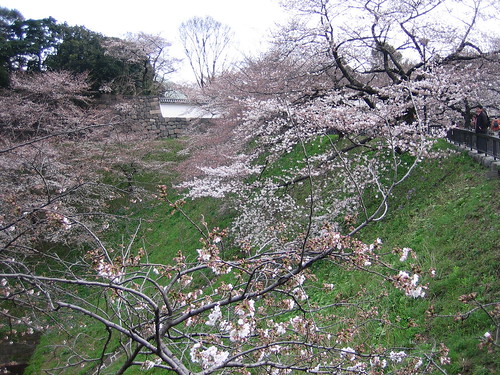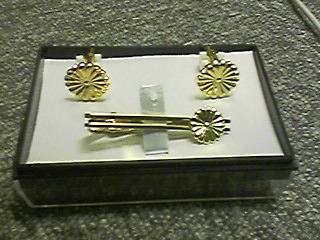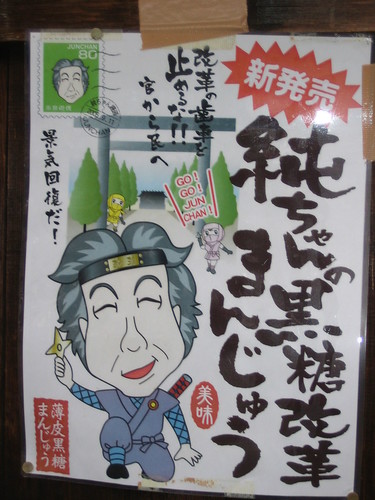
This subway ad is just begging for a Riding Sun caption contest.
(… Japanese people are funny …)
 Readdressing an age-old question: how does a visibly non-Japanese person deal with living in Japan?
Readdressing an age-old question: how does a visibly non-Japanese person deal with living in Japan?
Everyone in my office is bilingual to some extent, but the lingua franca is Japanese. When the three foreign employees use English in the office, people almost seem surprised at how good we are at it. Or, in the words of my boss, they seem to be thinking: “Wow, he isn’t a retard after all!”
But every day I have to go outside, into the Real Japan, where speaking English to a foreigner is a much more natural feeling. Hell, it’s practically a legal presumption now. I can tell you from personal experience that bureaucrats definitely treat you better when you speak to them in English. Even in our office, our Japanese clients are put at ease when they can practice their English on a foreign lawyer, but have the option to switch back into Japanese if the conversation starts getting difficult.
I occasionally poke around on mixi when I’m bored, and sometimes I enjoy slipping into the discussions in a group called 英語★できる人&勉強してる人 (“ENGLISH – People who know it and people who study it”). A high school-aged girl in Yokohama made a post a few weeks back along these lines:
I’m working part-time at a convenience store now, and I get quite a few foreign customers. I don’t know much English, but I’m wondering what I should say to them in English. Any ideas?
There were a bunch of replies, with varying degrees of appropriateness. I decided to slip in the Debito answer to this question at the bottom of the thread:
These are all good ideas. One thing you should watch out for, though, is that many foreign people in Japan want to speak Japanese. So if you see someone and immediately think “Oh, I’m going to speak English to them!” they might not appreciate it. Of course everyone has a different attitude, but there are such people out there.
Now I disagree with that suggestion. I remember poking through a book that advised people learning Japanese to “say you don’t speak English.” That’s an effective response, but it always struck me as extreme. Do I really have to lie to speak in Japanese with people on the street?
The Debito answer isn’t the right answer. The better example comes from Anthony Bianchi, the Brooklyn-born city councilman in Aichi Prefecture who we started talking about a few days ago. He likes who he is. As a result, people like who he is. He doesn’t need to file lawsuits to get his way: he can get himself elected.
In the Campbell hero archetype, this is called being the Master of Two Worlds. This is what you get when you blow up the Death Star, ride your horse into the sunset or accept surrender papers on a battleship in Tokyo Bay.
Now, I started writing this post as a bitchfest after a trip to Wendy’s came out like this:
ME: Bacon burger set.
EMPLOYEE [apparently a trainee]: Uh…. fo-a hee-uh o-a to go-o?
ME: [getting impatient] For here.
EMPLOYEE: [motions vaguely toward the set options part of the menu]
ME: Fries. Pepsi.
EMPLOYEE: S, M, L?
ME: (sigh) I want the small size, please.
The employee proceeded to ring up a small fries and small drink, but no burger. I didn’t want to make the situation any more difficult for him, so I paid my 200 yen, ate and left.
But in the end, there’s a comfort zone in Japan. It’s not enough to be Japanese or American… you have to be able to be both at once. And that’s something I’ll have to work on a bit. Maybe that kid just wanted to speak English; maybe he isn’t a retard after all.
They’ve been selling special “simplified” mobile phones lately, targeted at old people who apparently don’t “get” all the bells and whistles of typical models.
To this, reality responds:

“Get out of the way, whitey! I need a better signal so I can e-mail the jpeg to my grandkids!”
Since Japanese courts will not award them compensation, Chinese plaintiffs are now suing the Japanese government in Chinese courts to claim damages for Japanese actions during World War II.
None of the more than 20 cases since the early 1990s had ended in success, Tong Zeng, a campaigner for the cause and chairman of the non-government Chinese Association for Claiming Compensation from Japan, was quoted on Monday as saying.
“The likelihood of us winning the cases in the Japanese courts, influenced by right-wing forces who show no remorse at all, is very small” the Beijing Times quoted Tong as saying.
The Japanese government insists that the issue of war reparations was settled by the 1951 San Francisco Peace Treaty, that formally ended the war, and by later bilateral treaties. It says all wartime compensation issues concerning China were settled by a 1972 joint statement establishing diplomatic ties.
But Chinese courts also had jurisdiction over the claims and could hand down more fair verdicts — by trial in absentia if necessary, Tong was quoted as saying, adding the number of the lawsuits might jump due to the lower cost.
Now, I’m sure a Chinese court can get around Paragraph 5 of the Joint Communique of 1972:
The Government of the People’s Republic of China declares that in the interest of the friendship between the Chinese and the Japanese peoples, it renounces its demand for war reparation from Japan.
‘Cuz, after all, it isn’t the government asking for reparations. But that’s besides the point.
Unfortunately for these plaintiffs, they’re obviously wasting their time, because you can’t effectively sue the Japanese government in China. This badly formatted but still useful summary details how foreign judgments are enforced in Japan. You have to go to Japanese court, and they have to make the following analysis before giving an injunction to enforce the foreign judgment.
Article 118 of the Code of Civil Procedure
A foreign judgment which has become final and conclusive shall have effect only if it satisfies the following conditions:
i. the foreign court has jurisdiction according to laws or treaties;
ii. where the defendant has lost the case, he was notified of the litigation by service of documents (except service by publication) or he had entered appearance before the foreign court;
iii. neither the judgment nor the procedure of the foreign court is contrary to the ordre public of Japan; and
iv. there exists reciprocity.
Japanese courts refuse to enforce foreign judgments on “public policy” grounds all the time. For instance, if a Japanese defendant is ordered to pay punitive damages by a U.S. court, no Japanese court will enforce that part of the verdict, because punitive damages are against “public policy” under Japanese law.
Given that these “right-wing” Japanese courts have already dismissed many claims for reparations, who’s to think that they’ll change their mind just because the case was tried in a different forum?
I’ll grant you that these new lawsuits in China will be a PR field day for the Chinese government. A verdict might come down; Chinese police might try to seize Japanese assets in China, or something crazy like that, and will probably make governments the world over scratch their heads about whether they really want to do business in the Middle Kingdom.
But that’s all they’ll be good for. Aside from having their issue publicized, the plaintiffs are not going to benefit. Meanwhile, watch as Sino-Japanese relations become even more screwed up. I’m glad to be living in Japan, where most people don’t subscribe to this lunacy (they have much more interesting lunacies here).
Obvious Shintaro Ishihara quote of the week:
“I hate Mickey Mouse,” Ishihara said. “He has nothing like the unique sensibility that Japan has. The Japanese are inherently skilled at visual expression and detailed work.”
Obviously, this is a guy who’s never seen what American high school otaku can do.
[Virgin Galactic] spokesman Will Whitehorn told The Sun safety concerns have come to light for those who want to be launched in groups of eight to an altitude of more than 60 miles for 7 minutes of weightlessness.
“We’ve discovered there may well be issues with breast augmentation,” he said. “We’re not sure whether they could stand the trip — they could well explode.”
Now there’s something all those anime artists didn’t foresee.
Apparently, this is an April Fool’s Day stunt: fake PSAs are being aired on NBC, featuring the cast of “The Office.” For example:
You might be out with your friends on the weekend in a cool part of town, and someone offers you a beer for nine dollars. Don’t do it. Nine dollars is way too much to pay for a beer. Just walk away.
In a feat of true generosity, NBC put all of them online. Enjoy.

These were out in bloom last weekend by Kitanomaru Park, the area on the north side of the Imperial Palace around the Budokan (across the road from Yasukuni, which also has some gorgeous flowers in bloom).
This is the first sakura season I’ve seen since high school. Very, very natsukashii. One of the partners in our office, a retired judge who’s been practicing law since my parents were in diapers, insisted on taking a walk down Uchibori-dori after lunch the other day. Quite an excellent idea; nothing but pink flowers and gawking pedestrians in either direction. Times like this make me feel like there’s no place I’d rather be in the world. (Then I get on the Ginza Line and I just want to choke people.)
Political commentator and psycho dragon bitch from hell Ann Coulter has this to say:
One year before elections in Japan, the [New York] Times was predicting defeat for Koizumi, a loyal friend to President Bush and an implacable supporter of the war in Iraq.
Reporting on the unpopularity of the Iraq War in Japan, the Times said “polls indicate that the population is against an extension” of Japanese troops serving in Iraq and that the opposition vowed to withdraw troops. Indeed, “some members of Prime Minister Junichiro Koizumi’s own party have been calling for the troops’ withdrawal.”
And then in September 2005, Koizumi’s party won a landslide. The Times described this as mainly a victory for the prime minister’s idea to privatize the post office, explaining that Koizumi had won “by making postal privatization — an arcane issue little understood by most voters — a litmus test for reform,” thus confirming the age-old political truism, “Most elections hinge on arcane, obscure issues voters don’t know or care about.”
As congressional Republicans decide whether to take the Times’ advice and back away from the war this election year, they might reflect on a fourth world leader who won re-election while supporting the Iraq war. Just about four months before Bush was re-elected in 2004, the Times put this on its front page: “President Bush’s job approval rating has fallen to the lowest level of his presidency, according to the latest New York Times/CBS News poll. The poll found Americans stiffening their opposition to the Iraq war, worried that the invasion could invite domestic terrorist attacks.”
Maybe it was his support for the post office.
As much as I hate to agree with her, I don’t think the war drives most Japanese voters. In fact, I don’t think it drives most American voters (although it certainly means more to them). And the NYT… just doesn’t get it, basically.
Of course, you would probably hear the same basic opinion from Jon Stewart. He would just be funnier about it.

I bought these on a hanami (flower viewing) excursion to Yasukuni Shrine last weekend. Tie pins aren’t quite my style, but the cuff links are great. (And Lady Curzon, a true aristocrat, gives her approval.)
Other items on sale at Yasukuni:
* Japanese flag cuff links. I didn’t buy these because they seemed too loud. I now regret that decision, and plan to purchase them the next time I visit.
* An authentic-looking Imperial Rescript on Education you can put up in your home for that classic fascist feeling. (Framed with a portrait of Hirohito: ¥9,000. Unframed: ¥1000.)
* Special manju, packaged with a caricature of Koizumi on the box and parodies of LDP slogans. Here’s a photo, because I love you:

Anyway, if you see a honky walking around Tokyo wearing chrysanthemum cuff links, you’ll know it’s me, so be sure to say hi.